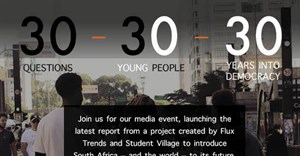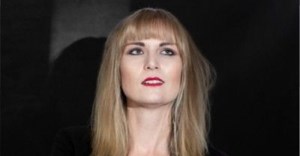
Subscribe & Follow
Jobs
- Business Development Consultant Johannesburg
- Personal Assistant and Project Coordinator to CEO Cape Town
#FluxTrendsMasterclass: Navigating between cynicism and social consciousness in a post-Covid world
Mike Stopforth is an entrepreneur, startup investor, author, global speaker, and a digital disruption and innovation advisor on several corporate boards. Stopforth is best known from his previous incarnation, as the founder of the trailblazing digital agency, Cerebra, one of South Africa’s first social media-based agencies.

Today, he is nurturing, and his new creation, Beyond Binary though which he helps companies build leadership skills and gives advice on new disruption-driven strategic change, which is why he is perfectly positioned to share his insights and wisdom with other entrepreneurs who are not quite as far along their own entrepreneurship journeys.
You are best known for your former business success in building and selling your agency, Cerebra - can you tell us a bit more about your new venture, Beyond Binary?
So, coming out of Cerebra. At the end of 2018, I had the opportunity to start thinking about what I might want to do next. And to be honest with you, I did not have a noticeably clear idea of what that might be. I had a very clear idea of what I did not want it to be.
In 2019 I decided to go back to business school, to question some of my thinking and to test my ideas in a more rigorous context. I did a little bit of research and found a program that's being run by the London School of Economics, which focuses on uncovering the intersections between business and profit and impact and what that might look like over the next couple of years.
Beyond Binary, was born out of some of what I learned in that process. It is bringing together worlds that I am really interested in. One is the world of technology and technological disruption. And the other one is the world of leadership and leadership’s attempt to find meaning and to create substance in a rapidly changing business landscape. Of course - I had no idea just how rapidly and disruptively, the world would change this year - but it has been interesting testing some of those ideas in this context.
So essentially, Beyond Binary is a consulting vehicle. I do a lot of training and speaking, and I am looking to build it out into some other offerings, as we hopefully emerge from the madness of 2020.
It is interesting you mentioned the intersection of profit and social purpose - however, there is a trap that businesses can fall into when it comes to marketing. As brands rush into cause-based communications trying to reflect that their business has a social purpose, beyond profits there are risks as coming across as cynical. There has been so much greenwashing, pink washing, black washing, rainbow washing, and brands are now being called out for not being authentic. So, so what do brands need to do to avoid this trap when they try and embark on a journey of cause-based communication?
This is such a big topic.
But I think that I think we need to acknowledge right up front that every organisation has purpose, and every organisation has impact, we have come to associate the words purpose and impact only with good things or, “socially beneficial” ideas.But the truth is that you could run an organisation with the sole intent of making as much money as humanly possible, without considering the potential costs of that or the impacts on the people involved. And that would still be a purpose, it just would not be a great one.
And fair game to you if that is your thing. But I think we are realising two things.
Number one is that more and more organisations are asked to be explicit about what their purpose and intent is, to be held accountable for that. Secondly, as we look to the future, and toward a more complex business landscape - a more socially integrated and complicated landscape - it might be harder and harder for businesses to be sustainable and to create value in the long term, if they don't, in some way, shape, or form, consciously test the integrity of that impact and purpose.Having said that, there's a real danger as you as you rightly point out that just attempting to appear intentional, just trying to be purposeful in your communications without any material foundation for that anything backing that up, has got far more danger implicit to it than if you hadn't done anything in the first place.
Of course, your primary focus should just be running a great organisation. And that is building a beautiful product, selling it well, making your customers happy and looking after your employees.
That is the starting point. Building these other external social impact layers around it provides authentic opportunities for businesses but the key word there really is are they authentic?
Every single business is being forced to digitalise now; everyone is trying to do digital marketing. So how do businesses really cut through the noise? Is “brand empathy” - or cause-based communication a good communications strategy here?
There is two parts to the question. The one part is how do you cut through the noise? How do you become more intentional about what you are doing in the social media space? My primary for my clients was always go understand how you sell and then do that incredibly effectively or efficiently.
So, let me let me try and illustrate that through an example. One of our big early clients at Cerebra was Toyota, and we are really proud of the work that we did with him, especially in the very early days of organic social media content creation and building communities. We had high levels of engagement and lots of active conversation and, and suddenly, we came to an account review and the account was under threat and we did not understand why. We asked them what they were unhappy with and they explained it was because we were not helping them to sell Toyota's - being active on Twitter is great, it’s great that there’s lots of conversation and brand affinity and equity - but ultimately, we really needed to show some correlation between what we were doing online and our ability to help our client sell cars.
So, I asked a question that I probably should have asked earlier in our relationship, and that was so how do you sell cars? And they said explained we needed get people into dealerships. Once people are dealerships, they hopefully will book a test drive. And they can get somebody into a test drive, they have a pretty high conversion rate on sales from there.
So our entire focus changed to trying to build a propensity for people to be interested in physically getting into a car - testing or driving and experiencing that new car smell and the feeling of being in that in that moment - which is very counterintuitive for a digital marketing channel - but getting those people into those vehicles delivered huge value to the client.
So, knowing how you sell, and then focusing on giving your customers the very best opportunity to engage in that process surely has to be a foundational pillar of that of the digital marketing discipline.It is also worth acknowledging that that being active in social media comes with repetitional risk.
But it is also worth acknowledging that a lot of brands that are subject to social media crises, or are held to ransom online, do not necessarily experience a correlated impact on their business in the real world.
We have got to be very careful that we do not assume that social media is real life. It absolutely is not. It is a representation of real life. And in some ways, it is an extremely poor representation of real life.There is a certain type of personality and a certain type of behaviour that is attracted to social media and is rewarded on the platform. This is why we've seen brands that have been through what many of us would consider severe brand crisis online, that have actually seen an upturn in online traffic or sales or customer time in store due to the attention - this seems completely counterintuitive, but I think speaks to the dichotomy between the fickleness of social media in some instances, and people's real world behaviours.
As a successful entrepreneur in your own right, what's generic marketing advice - whether it is a quick win or a set of slow burn tactics that you can offer to South African business owners today?
The caveat to what I am going to say is that I ran a service business, and its product was people - and my ability to enable those people to provide a value-added service to customers.
But I realised very quickly in Cerebra, that my best chance of selling the benefits of what we did, convincing our clients that what we did was meaningful and impactful, and building their confidence in our ability to deliver it - consistently came down to my ability to look after people to create a space where my employees - my colleagues - were happy and genuinely fulfilled at world.
Hopefully, people left Cerebro and said that it was a place that they wanted to work at; a place that they left hopefully smarter, more capable, more enabled them when they arrived. That we did not get that right all the time. I have failed on that mandate many times. But by and large, it seemed that the vast majority of people that worked their business left feeling good about it. And that translates to how they spoke about us in the industry, how they spoke about it to clients, how they presented work to clients, and how they interacted with clients. And that internal goodwill added up to an exponential brand benefit.
I realised quite quickly that my best marketing strategy was to empower and encourage my staff to talk about us in a positive way.
I think that getting the basics right, making sure that that you have a clean house - making sure that the bathroom is presentable before you throw a house party is a really good strategy, especially in times where it is the media landscape is competitive and noisy, and we're being scrutinised more than ever before.
Pretending to be something you are not is always going to be an enormous risk - and right now it is an unacceptable risk.So may advice would be to narrow the gap between who you promise to be and who you actually are in real life.
And the best way to prove that is in the relationships that you have with your own stakeholders and employees.
This interview was part of the Flux Trends Alinea Mini Masterclass Series dedicated to helping South African entrepreneurs and SMEs use trends as business insights to get back to work after the manifold challenges of 2020. For more trends as business strategy, join the Flux Trends mailing list here.













